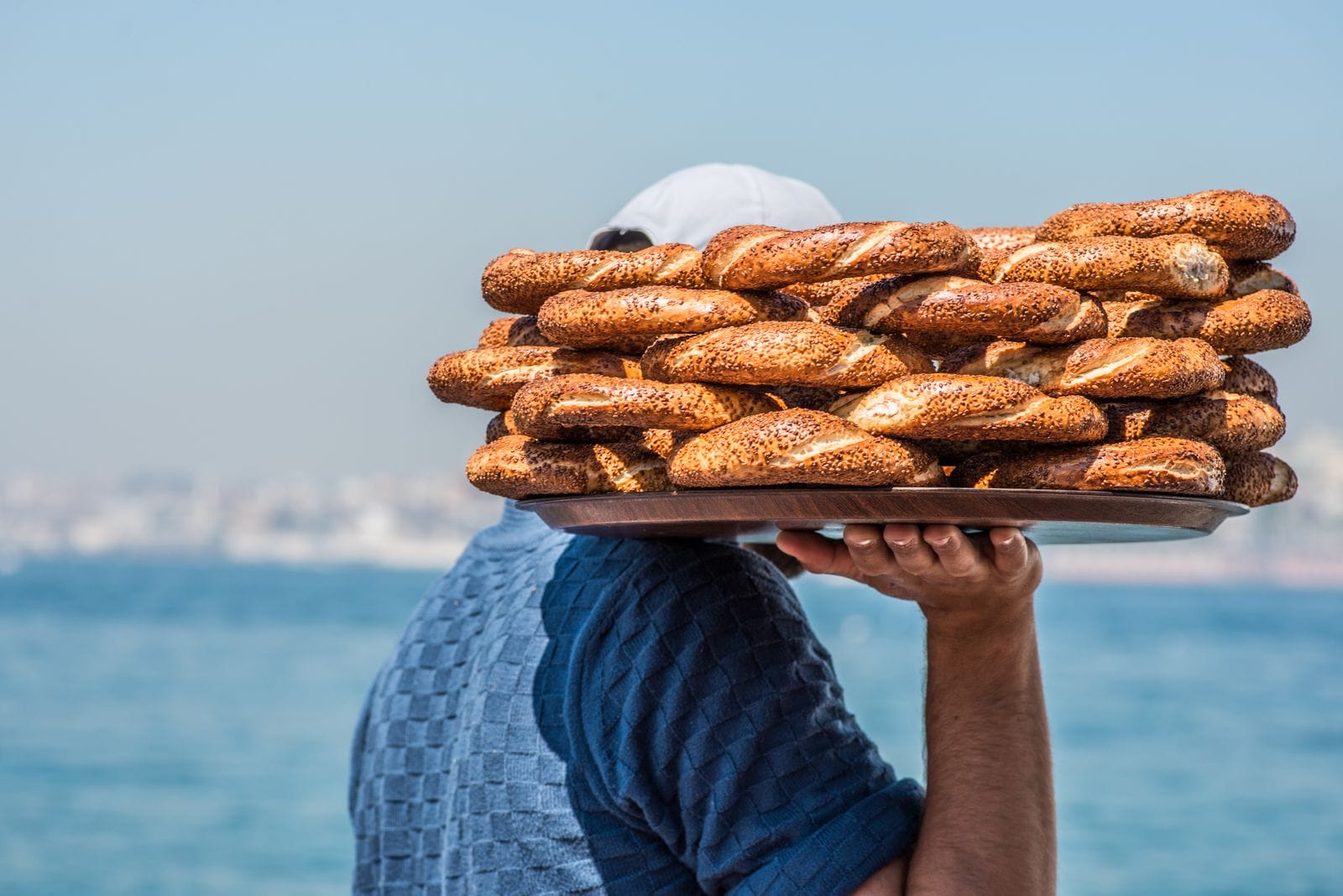It’s a busy winter weekday in Istanbul, the weather is perfect and the streets around Istanbul University, the Beyazıt Mosque and the iconic Grand Bazaar are buzzing. In the late afternoon, shopkeepers are scrambling to make their last sales while the best restaurants in the area are getting ready to close. Mediocre establishments are open later into the night, with employees brandishing large menus and coaxing tourists through their doors.
Avoiding the crowd around one of the bazaar’s main entrances, we saunter down a side street where things instantly feel more local. We’ve come to the specific address of a kebab restaurant recommended by friend and intrepid Istanbul walk leader Benoit Hanquet, but there is no such eatery in sight. We ask a shop employee where Saaf-i Kebap might be, and he points directly across from where we are standing – to a rusty staircase that leads to a windowless, sign-free building on the second floor.

Manning the grill inside is the friendly and engaging 42-year-old Yaşar Demirel, who has worked in the kebab game since he was eight, starting as a dishwasher and climbing up to the ranks of usta, or master. His family moved to Istanbul from the southern province and kebab capital of Adana when he was a child, and like many who came to the big city for better economic circumstances, Yaşar Usta had to forgo an education to contribute to the family’s income.

Previously partners with his brother at Gel Gör Kebap – a more conventional restaurant down the street with a larger menu, prominent sign and more expansive dining room – Yaşar Usta decided to forge out on his own after a disagreement. In 2016, he opened Saaf-i Kebap on the ground floor of a building owned by his family on this narrow backstreet, just around the corner from the Grand Bazaar. Business was booming, but things became too overwhelming for Yaşar Usta, who took a break for a year and rented out the space. (The fact that a working-class migrant family with no opportunity to get an education was able to eventually purchase a shop in this area of Istanbul is a true sign of perseverance and hard work.)
After taking time off from the trade that he has been involved in for more than three decades, Yaşar Usta decided it was time to return to the grill. He opened the current location, confident that he wouldn’t need a fancy dining room or even a sign, given his vast customer base among tradesmen and other workers in the area. Here, he would be able to turn out to a third of what he was grilling up before, willingly decreasing the capacity of orders to avoid further burnout.

“Everyone knows us. So, even if we are in a place that is hidden, since they know our phone number they call and place orders,” Yaşar Usta tells us. While there are half a dozen or so tables inside the barebones restaurant, the majority of the business comes from delivery orders from area shopkeepers.
“For example, we get started at noon and continue until 3 p.m. at a busy tempo without stopping. Sometimes, we can’t keep up and it will take an hour or an hour-and-a-half to get someone their food,” he admits.
“Because I’m constantly inhaling smoke, sometimes I wheeze when I sleep. This is a difficult job, but this is the only trade I know, and I am happy with it,” Yaşar Usta says. “People who do this job need to stop after a certain age because many develop cancer or their bodies can no longer withstand it. It’s a rough pace and, during the summer when it’s sizzling outside, you’re in front of the grill taking the heat. When you fan [the charcoal], you inhale all of the smoke into your lungs. If a guy smokes a pack of cigarettes a day, I’m smoking the equivalent of 10 packs here.”

This is the primary reason why he decided to scale things down, not willing to further sacrifice his health to churn out a larger volume of orders. Nowadays, he works with a small crew from noon until around 7:30 p.m., and in the later hours of the day things slow down.
Yaşar and his team crank out the classics: Adana kebap (a spicy mixture of beef and lamb), chicken wings and grilled chicken skewers, the latter of which is Saaf-i Kebap’s specialty. We didn’t know this on our first visit and opted for the Adana, which is hand-cut using a zırh, a large curved knife. He insists that this is the only way to do it, as machines betray the quality of the meat. We enjoyed our kebab, and though it doesn’t rank among the best Adanas we’ve had, we appreciated the succulent flavor provided by the slightly greasy, bubbling lamb fat that wasted no time striking our palate. What was more intriguing was the potent acılı ezme (spicy pepper dip) and a small dish of yogurt with small, savory slices of roasted eggplant and red pepper that were served as mezes on the side.

The next time we rolled in, Yaşar Usta warmly welcomed us and announced that he was going to prepare us his signature grilled chicken skewers – the precise reason why we had returned. While most kebab restaurants use cubed chicken breast, he prefers thigh cutlets, which are considerably more tender. The end result is a skewer of juicy, delectable morsels with the perfect hint of spice, further proof that chicken can be elevated. He explains his process, which involves marinating the chicken in a mixture of tomato paste, red pepper flakes and olive oil for 3-4 hours before it hits the grill. He demonstrated that the thigh cutlets have to be situated on the meter-long skewers in a particular way so that they do not move, as they are grilled quickly on both sides and have to stay in place for an even cook.

Yaşar Usta has loyal customers, some of whom order from him every day. They keep him on his toes, and are not afraid to call and tell him if the food is lacking or heavy in salt or spice, which contributes to his perfectionism. His prices are reasonable, significantly lower than nearby places serving food cooked with much less love, and friendly to the working man’s budget.
“If my father had had money, I would have preferred to go to school,” he confides. “The youth of today prefer more comfortable jobs, and as a result ustas are no longer being brought up, which means that gradually with time this trade will begin to die.” Yaşar Usta’s last name, Demirel, translates to “iron hand,” which we told him was befitting of a kebab master who slaps down iron skewers on an iron grill all day. He cackled heartily in response. Even if he retires soon, this trade has been his life and passion, and he waxes poetically on it even while detailing its difficulties. One can only hope that ustas with his level of skill and commitment won’t fade away.
Published on February 26, 2024
Related stories
Meet the man behind the famous pit-roasted lamb on the Old City walk!
March 12, 2024
Istanbul | By Malika Browne
IstanbulRamadan fasters in Istanbul may not love the endless daylight hours in summer nor the susuzluk (no water), but when the reward is a leisurely iftar under the trees on Kadınlar Pazarı, the pedestrianized market known as Little Siirt (named after the southeastern Turkish city where many of the local shop and restaurant owners hail…
February 28, 2024
Food Tours NDQuick Bite: This full-day Istanbul market tour draws from our best-of list in the European side’s Karaköy neighborhood and the Asian Kadıköy, tied together by a Bosphorus crossing, visiting two markets on two continents. Our favorite Istanbul experiences include exploring the eateries in local markets and crossing the Bosphorus on the public ferry. The route for…
February 9, 2024
IstanbulSituated on a pleasant corner in the heart of Kurtuluş is an unlikely yet warmly welcomed addition to this beloved neighborhood's excellent food scene: Horo Burger, which only features Sloppy Joes on its menu. While the name of this American classic conjures pleasant memories of family dinner for some and horrifying flashbacks from the school…























































































